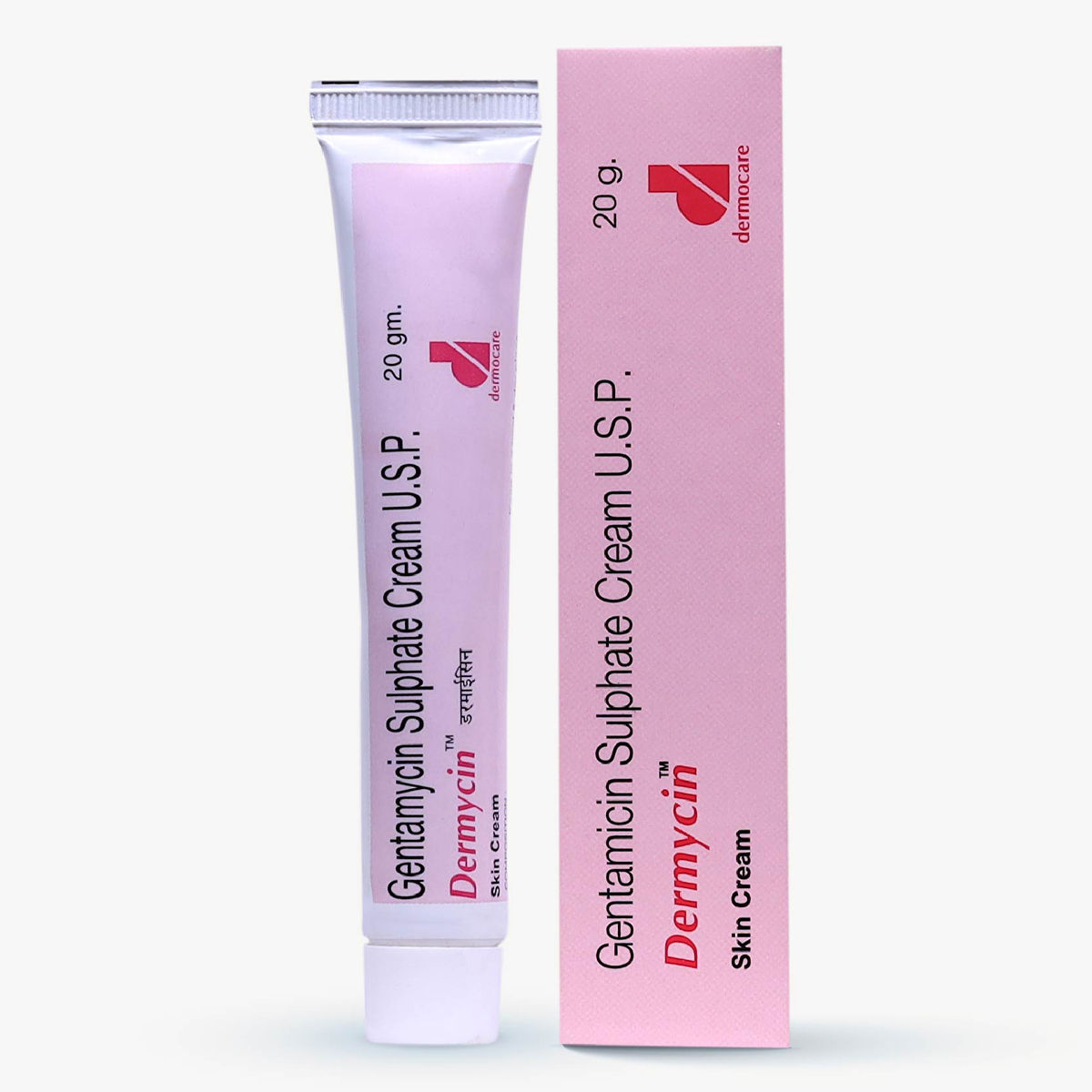G Mycin Eye Drop
₹13.5*
MRP ₹15
10% off
₹12.75*
MRP ₹15
15% CB
₹2.25 cashback(15%)
Free Delivery
With Circle membership
(Inclusive of all Taxes)
This offer price is valid on orders above ₹800. Apply coupon PHARMA10/PHARMA18 (excluding restricted items)
Know Your Delivery Time
Provide Delivery Location

Available Offers
 Prescription drug
Prescription drugWhats That

Secure Payment

India's Most Trusted Pharmacy

Genuine Products
About G Mycin Eye Drop
G Mycin Eye Drop is used to treat bacterial infections of the eye and the skin around the eyes (eyelids). It is used to treat infections like conjunctivitis (inflammation of the mucous membrane (conjunctiva) of the eye), keratitis (inflammation of the cornea), keratoconjunctivitis (inflammation of conjunctiva and cornea), blepharitis (inflammation of the eyelids), blepharoconjunctivitis (inflammation of conjunctiva and eyelids), and corneal ulcers. Bacterial infection occurs when bacteria invade and multiply in the body.
G Mycin Eye Drop is composed of Gentamicin, an aminoglycoside antibiotic. It prevents bacteria from synthesising essential proteins required to carry out vital functions. It has broad-spectrum activity against aerobic gram-positive and gram-negative bacteria.
G Mycin Eye Drop is for ophthalmic (for the eye) use only. Common side effects of G Mycin Eye Drop include eye redness, burning or a stinging sensation at the application site, and temporary blurred vision. These side effects may not occur in every patient using this medication and differ individually. If the side effects persist longer or worsen, please seek a doctor's advice.
Let your doctor know if you are allergic to G Mycin Eye Drop or any other medications. Avoid contact of the dispensing tube tip with the eye, eyelids, fingers, and other surfaces to prevent contamination. Pregnant and breastfeeding women should consult their doctor before starting G Mycin Eye Drop. This medicine may cause temporary blurred vision; hence drive only when you are alert and have clear vision. G Mycin Eye Drop should be used in children only when advised by a doctor.
Uses of G Mycin Eye Drop
Directions for Use
Medicinal Benefits
G Mycin Eye Drop is used to treat various bacterial infections of the eye and the skin around the eyes (eyelids). G Mycin Eye Drop consists of Gentamicin, an antibiotic that prevents the synthesis of essential proteins required by bacteria to carry out vital functions.
How G Mycin Eye Drop Works
Storage
Side Effects of G Mycin Eye Drop
- Redness of the eye
- Stinging/burning sensation
- Temporary blurred vision
What if I have taken an overdose of G Mycin Eye Drop
Drug Warnings
Inform your doctor if you are allergic to any of the components in G Mycin Eye Drop or if you have a medical history of allergic reactions to medicines. Avoid touching the tip of the tube with bare hands or taking it closer to the eyelids while using ointment since it may cause contamination. If you wear contact lenses, remove them while administering the medicine into the eye. It is advised to check with your doctor before using G Mycin Eye Drop if you are pregnant or breastfeeding. Avoid driving or operating machines until you have a clear vision since the administration of G Mycin Eye Drop may cause temporary blurred vision.
Diet & Lifestyle Advise
- Manage stress, eat healthily, drink plenty of water, exercise regularly, and get plenty of sleep.
- Eat food rich in antioxidants such as berries, spinach, kidney beans, dark chocolate, etc.
- Know your allergy triggers, such as pollen, dust and other factors.
- Do not rub your eyes even though some ophthalmic drugs make your eye itchy.
- If you wear contact lenses: Clean and replace contact lenses more often. Never share contact lenses. Always wash your hands before inserting and removing the contact lens.
- Avoid staring at the digital screens for longer durations. Rest your eyes every 20 minutes.
- Avoid or limit the intake of alcohol and caffeine.
Habit Forming
Therapeutic Class
G Mycin Eye Drop Substitute

Supragent Lotion 30 ml
by AYUR
₹2.25per tabletGentacol Eye Drops 10 ml
₹3.69per tabletDermycin Cream 20 gm
₹0.58per tabletGenticyn Eye/Ear Drops 10 ml
₹0.89per tabletRegenta Eye/Ear Drops 10 ml
₹1.35per tablet
Product Substitutes
Alcohol
Caution
There is limited information on how alcohol consumption affects G Mycin Eye Drop. Please consult your doctor if you have any concerns.
Pregnancy
Caution
It is advised to consult your doctor if you plan to conceive or are already pregnant before starting G Mycin Eye Drop.
Breast Feeding
Caution
There are limited studies on how G Mycin Eye Drop affects breastfed infants. Please consult your doctor before using G Mycin Eye Drop if you are breastfeeding.
Driving
Caution
G Mycin Eye Drop may cause side effects like blurry vision, affecting your driving ability. Do not drive or operate machinery in such cases. Drive only when you are alert and have clear vision.
Liver
Caution
Let your doctor know if you have any history of liver diseases or hepatic impairment before starting G Mycin Eye Drop.
Kidney
Caution
Let your doctor know if you have any history of kidney diseases before starting G Mycin Eye Drop.
Children
Caution
G Mycin Eye Drop should be used for children only when advised by a doctor. However, the safety and effectiveness of G Mycin Eye Drop have not been established in neonates.
FAQs
Country of origin
Disclaimer
Author Details
We provide you with authentic, trustworthy and relevant information
Reference
- https://dailymed.nlm.nih.gov/dailymed/getFile.cfm?setid=a357d23d-1f10-44ce-a2fa-a6a5e03e7739&type=pdf
- https://www.webmd.com/drugs/2/drug-8337-842/gentamicin-ophthalmic-eye/gentamicin-ointment-ophthalmic/details
- https://www.drugs.com/cdi/gentamicin-eye-ointment.html#side-effects
- https://www.advacarepharma.com/en/pharmaceuticals/gentamicin-eye-ointment

















